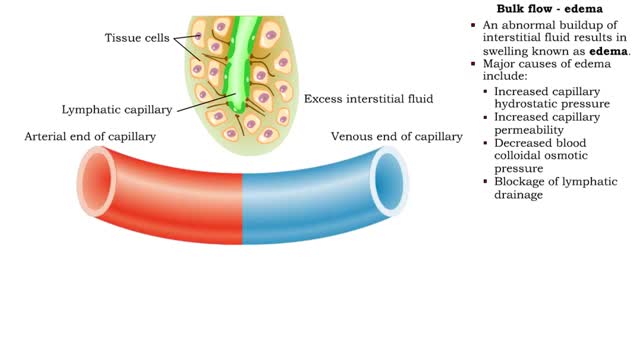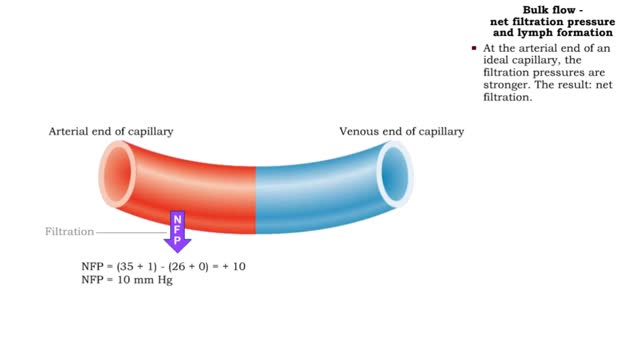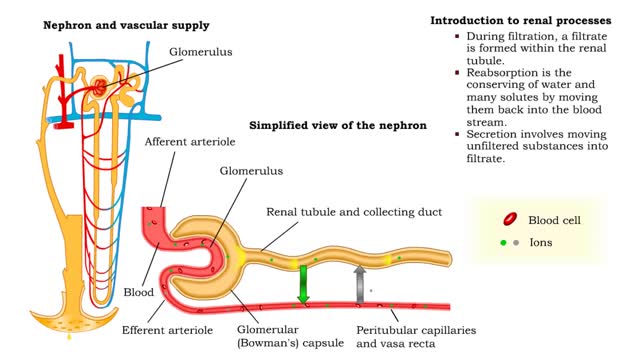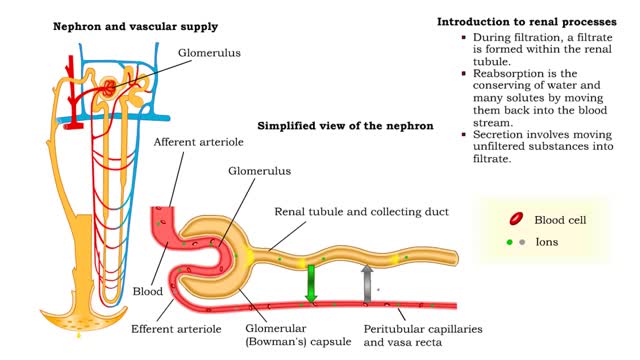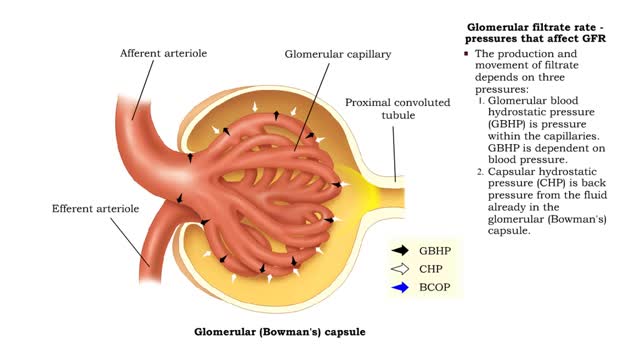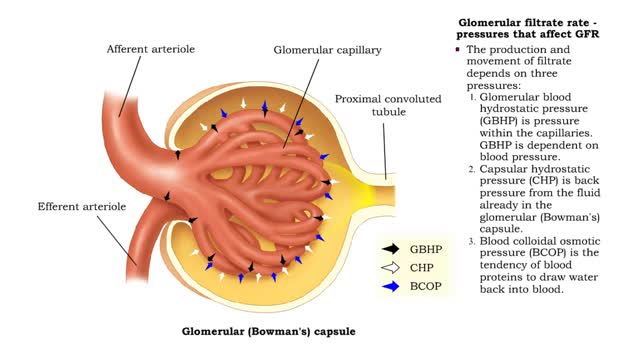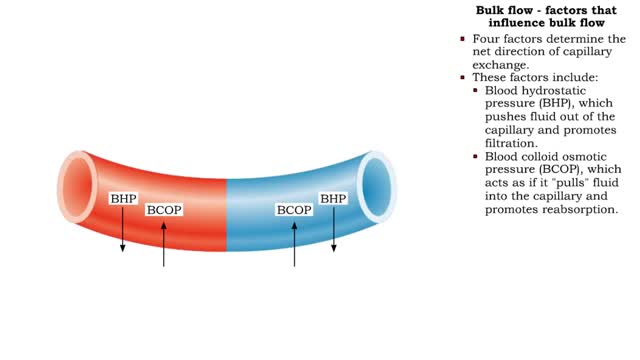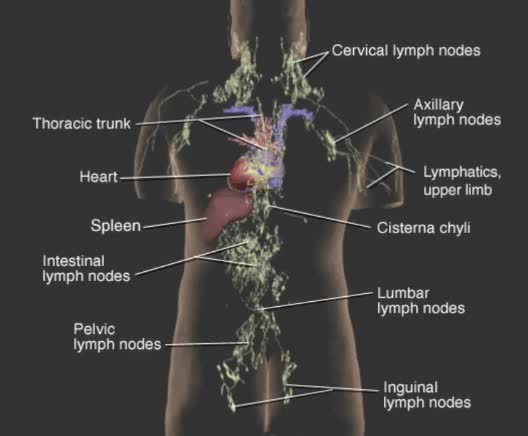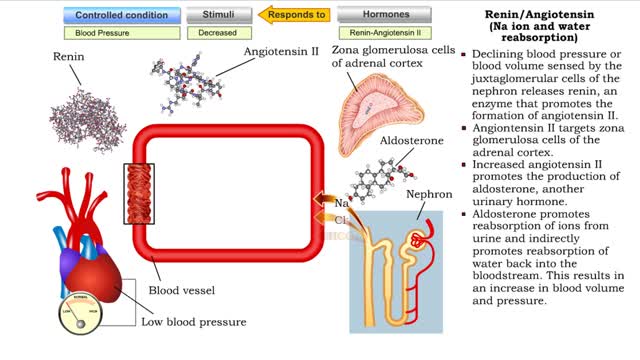Search Results
Results for: 'Net filtration pressure and lymph formation'
Net filtration pressure and lymph formation, edema & blood velocity
By: HWC, Views: 10969
Bulk flow -net filtration pressure and lymph formation • The net filtration pressure (NFP) is the force promoting filtration minus the force promoting reabsorption. • At the arterial end of an ideal capillary, the filtration pressures are stronger. The result: net filtration. • At t...
Bulk flow - Factors that influence bulk flow
By: HWC, Views: 11334
• Bulk flow helps regulate the relative volumes of blood and interstitial fluid. • Flow from blood to interstitium is called filtration. ■ Flow from interstitium to blood is called reabsorption. ■ Four factors determine the net direction of capillary exchange. ■ These factors in...
Introduction to filtration - filtrate formation and composition
By: HWC, Views: 11266
• At the nephron, the three process responsible for the formation of urine include: • Glomerular filtration. • Tubular reabsorption. • Tubular secretion. • During filtration, a filtrate is formed within the renal tubule. • Reabsorption is the conserving of water and many s...
Carbohydrate Metabolism: Introduction to renal processes and filtrate formation and composition
By: HWC, Views: 11271
• At the nephron, the three process responsible for the formation of urine include: • Glomerular filtration. • Tubular reabsorption. • Tubular secretion. • During filtration, a filtrate is formed within the renal tubule. • Reabsorption is the conserving of water and many s...
Glomerubular filtrate rate -pressures that affect GFR and net filtration pressure
By: HWC, Views: 11519
• The glomerular filtration rate is the amount of filtrate formed per minute within the renal corpuscle. • Once the filtrate is formed it moves down the tubule. • The production and movement of filtrate depends on three pressures: I. Glomerular blood hydrostatic pressure (GBHP) is pre...
Glomerular filtrate rate: pressures that affect GFR, NFP & GFR and blood composition
By: HWC, Views: 11627
• The glomerular filtration rate is the amount of filtrate formed per minute within the renal corpuscle. • Once the filtrate is formed it moves down the tubule. • The production and movement of filtrate depends on three pressures: I. Glomerular blood hydrostatic pressure (GBHP) is ...
Bulk flow - factors that influence bulk flow
By: HWC, Views: 10710
• Bulk flow helps regulate the relative volumes of blood and interstitial fluid. • Flow from blood to interstitium is called filtration. • Flow from interstitium to blood is called reabsorption. • Four factors determine the net direction of capillary exchange. • These factors in...
By: Administrator, Views: 578
Blood and lymph are two of the body's main fluids and are circulated through two separate but interconnected vessel systems. Blood is circulated by the action of the heart, through the circulatory system consisting largely of arteries, veins, and capillaries. Lymph does not actually circulate. ...
Renin/Angiotensin (water gain from urine & Na ion and water reabsorption)
By: HWC, Views: 11095
• Sensing declining blood pressure or blood volume, juxtaglomerular cells of the nephron release renin, an enzyme that promotes the formation of angiotensin II. • Angiotensin II targets smooth muscle cells in blood vessels that provide blood to the nephron. • Angiotensin II causes thes...
Advertisement



